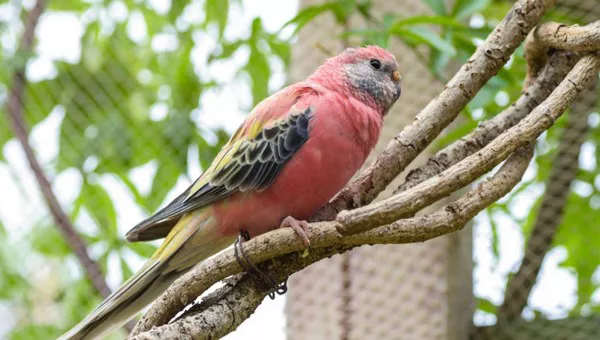In the world of avian enthusiasts, the colorful personalities and vibrant feathers of conures make them popular choices for pet owners. Among these delightful birds are the sun conure and the green-cheeked conure. Each breed has its own unique characteristics, behavioral traits, and physical appearances. However, a question that often arises among bird lovers is whether these two species can interbreed. In this article, we will explore the breeding compatibility of sun conures and green-cheeked conures, the implications of hybrid breeding, and the overall care and characteristics of both species.
Understanding Conures
Conures are a group of small to medium-sized parrots belonging to the family Psittacidae. They are known for their lively personalities, social nature, and playful behavior. Conures typically have a strong bond with their owners and can be quite vocal, making them engaging companions. This family of birds includes various species, each with distinct features and traits.
Sun Conure (Aratinga solstitialis)
The sun conure, often referred to as the sun parakeet, is known for its striking appearance and cheerful disposition. Here are some key characteristics:
Appearance: Sun conures are primarily yellow with bright orange and green accents on their wings and tail. They have a beautiful, vibrant color palette that makes them stand out in any environment.
Size: They typically measure about 12 to 14 inches in length and weigh around 100 to 120 grams.
Behavior: Sun conures are known for being social and affectionate. They thrive on interaction with their owners and require a significant amount of socialization. They are also quite playful and enjoy toys and activities that stimulate their minds.
Vocalization: These birds are known for their loud and distinctive calls. While they can be quite noisy, many owners find their vocalizations endearing.
Lifespan: With proper care, sun conures can live for 20 to 30 years.
Green-Cheeked Conure (Pyrrhura molinae)
The green-cheeked conure is another popular species among bird enthusiasts. They are often favored for their smaller size and playful nature. Here are some of their defining characteristics:
Appearance: Green-cheeked conures have a predominantly green body with a grayish breast and a distinctive maroon patch on their tails. Their coloration is more subdued compared to sun conures but still charming.
Size: These conures are smaller, measuring about 9 to 10 inches in length and weighing between 60 to 80 grams.
Behavior: Green-cheeked conures are known for their playful and affectionate demeanor. They enjoy spending time with their owners and can be quite cuddly. They also require mental stimulation and love interactive toys.
Vocalization: They are generally quieter than sun conures, making them a good option for those living in apartments or with noise restrictions.
Lifespan: Green-cheeked conures can live up to 15 to 20 years with proper care.
Breeding Compatibility of Sun Conures and Green-Cheeked Conures
Can They Breed?
When considering whether sun conures can breed with green-cheeked conures, it is essential to understand their genetic compatibility. Both sun conures and green-cheeked conures belong to the broader family of conures, but they are classified as different species within that family.
Hybridization: In the avian world, hybridization occurs when two different species breed. While hybrids can sometimes occur between closely related species, such as different types of conures, it is not always a guarantee. The hybrid offspring, if they do occur, are often referred to as “mutts” or “crosses.”
Successful Breeding: Reports suggest that it is possible for sun conures and green-cheeked conures to produce hybrid offspring. These hybrids typically display a mix of characteristics from both parent species. However, hybridization can lead to various genetic and health issues in the offspring.
Implications of Hybrid Breeding
While the prospect of hybrid breeding can be exciting, it comes with several considerations:
Genetic Health: Hybrid birds may inherit health issues from both parent species. Breeders must be cautious when intentionally breeding hybrids to ensure the health and well-being of the offspring.
Behavioral Traits: The hybrid offspring may exhibit unpredictable behavioral traits, as they may inherit characteristics from either parent. This variability can affect their socialization, vocalization, and overall temperament.
Legal and Ethical Considerations: In some regions, breeding hybrids may be subject to legal restrictions. Additionally, ethical concerns arise when considering the long-term welfare of hybrid birds, especially if they do not fit neatly into the established traits of either parent species.
Market Demand: There is often a demand for hybrid birds among collectors and enthusiasts. However, this demand can lead to unethical breeding practices if not approached responsibly.
Care Requirements: The care requirements for hybrid birds may not be well understood, as they may combine traits from both parent species. This can lead to challenges in providing appropriate care.
Caring for Sun Conures
Diet
Proper nutrition is crucial for the health of sun conures. A well-balanced diet should include:
Pellets: High-quality pelleted diets should form the basis of their nutrition. Look for pellets specifically formulated for conures.
Fruits and Vegetables: Fresh fruits and vegetables should be provided daily. Safe options include apples, bananas, carrots, broccoli, and leafy greens. Avoid toxic foods such as avocado and chocolate.
Seeds and Nuts: While seeds and nuts can be given as treats, they should not make up the bulk of their diet, as they are often high in fat.
Housing
Sun conures require spacious cages with plenty of room for climbing and play. Important considerations include:
Cage Size: A minimum cage size of 24 x 24 x 36 inches is recommended for a single sun conure. The larger the cage, the better.
Perches and Toys: Provide a variety of perches made from natural wood, as well as plenty of toys to keep them mentally stimulated. Rotate toys regularly to prevent boredom.
Socialization and Interaction
Sun conures thrive on social interaction and need daily engagement with their owners. Tips for socializing:
Quality Time: Spend time with your sun conure each day, engaging in play and interaction. They enjoy being handled and will often seek affection.
Training: Positive reinforcement training can help strengthen your bond with your bird. Teaching them simple tricks can also provide mental stimulation.
Health Care
Regular veterinary check-ups are essential for maintaining the health of sun conures. Be aware of common health issues:
Feather Plucking: Stress or boredom can lead to feather plucking. Ensure they have enough mental stimulation and social interaction.
Respiratory Issues: Sun conures can be sensitive to airborne irritants. Avoid exposing them to smoke, strong chemicals, or other pollutants.
Caring for Green-Cheeked Conures
Diet
Similar to sun conures, green-cheeked conures require a balanced diet:
Pellets: A high-quality pelleted diet should be the foundation of their nutrition.
Fruits and Vegetables: Fresh produce is vital for their health. Safe options include strawberries, bell peppers, and kale.
Seeds and Nuts: Treats should be given in moderation.
Housing
Green-cheeked conures also need a spacious environment:
Cage Size: A minimum cage size of 24 x 18 x 24 inches is recommended. Ensure the bars are close enough together to prevent escape.
Perches and Toys: Include various perches and toys to encourage exploration and play.
Socialization and Interaction
Green-cheeked conures are affectionate and enjoy spending time with their owners:
Bonding Time: Regular interaction and playtime are essential for building a strong bond.
Training: Engage in training sessions using positive reinforcement. They can learn tricks and commands just like sun conures.
Health Care
Regular veterinary visits are important for green-cheeked conures:
Common Health Issues: Be vigilant about potential health concerns such as respiratory problems or gastrointestinal issues. Regular check-ups can help catch these early.
Conclusion
In conclusion, while it is theoretically possible for sun conures and green-cheeked conures to interbreed, various factors must be considered. Understanding the genetic compatibility, potential health issues, and behavioral implications of hybrid breeding is essential. Moreover, responsible breeding practices and a commitment to the welfare of all birds involved should be prioritized.
Whether you choose to own a sun conure, a green-cheeked conure, or even a hybrid, proper care, socialization, and understanding of each species’ needs will ensure a happy and healthy companion. Conures are incredibly social birds that thrive on interaction and stimulation, and their vibrant personalities bring joy to many households. By understanding their specific care requirements and characteristics, bird enthusiasts can create a fulfilling environment for their feathered friends, regardless of the species.
Related Topics:
























